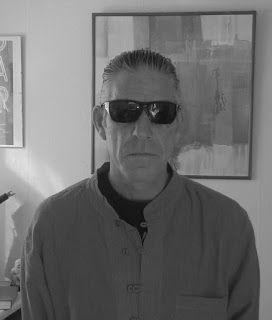invisible suffocation
it happened again. i don’t know how it found me
this time, but someone must have sold me out.
i was alone in medical records, reading a former
patient’s chart when i felt it. i couldn’t avoid it. i ran
from the room with my papers clutched in my hand
like a crucifix until i reached an unfamiliar ward on
the second floor, but it was there too. it kept hunting
and following me. and on the third floor i was
walking with patients, but it found them too. they
began screaming and instructed me to flee. i managed
to get into the staircase where i leapt down two flights
of stairs before making it to my desk. but when i got
there, it was sitting in my chair, calmly waiting. and so
i submitted to it. and on lunch break it rode as my
passenger, my copilot on this journey in hell, its claws
clasped between my ribs, with strength that
manifested from all the years of sadness from this
hospital. my watch offered no escape. 4 o’clock was
three and a half hours away. that’s a long time to wait
in a sadness that is not yours.
stale air
she smokes a cigarette
with her current lover,
they’ve been at it for months.
I walk in circles in the rain,
stumbling and pacing,
trying to feel the falling rain,
trying to feel anything.
another night wasted,
another night spent
getting wasted.
inside I sit alone.
the countertop
is covered in beer
and dollar tips.
I watch a single black ant
pace between patrons and
study his environment
with his feelers.
I pick him up,
but it’s too much power,
I let him down.
a blonde with a terrible
neck tattoo that reads “overcome”
smashes him with one swift move.
my former lover
passes by and
squeezes my left side.
I think about how the ant
got the better deal.
Entrance/Exit
A grassroots initiative
to start a revolution
came together
on a foggy night
in November hell.
“Shit,” I yelled, “I’ve got
four gallons of
unopened kerosene!”
Silence rushed in like waves breaking
on the shores of Gloucester;
One person in the room
stood up and clapped;
Mice were heard fucking
between the walls;
Eventually peace talk resumed
and a pigeon flew into a closed window.
On Friday I get paid,
I’ll eat two pizza slices
and watch the cars go by.
i always hated new york
she stares me in the eyes
and i look back—
two souls unbroken
and never to be touched—
the line is severed and
it’s nothing more than
a passing glance.
i see the sorrow,
she sees the misery.
tonight when the moon
says nothing,
remember
my eyes
said
something
old man behind a cemetery
I watched an
old man
drag two
sleeping bags
into the
woods
behind a cemetery
and I watched
as his
silhouette
faded
into the woods.
I sat for
a while
wondering
if I
should
check in
on him or
call the police
but instead
I read
a book.
Update: See also five haikus by Tohm here:
TOHM BAKELAS:
Tohm Bakelas is a social worker in a psychiatric hospital. He was born in New Jersey, resides there, and will die there. His poems have appeared in numerous journals, zines, and online publications. He is the author of several chapbooks and a full length book of poetry. His work has been nominated for the Pushcart Prize and he intends to conquer the small press and exclusively publish within.
CONTACT:
Email: tohm.bakelas@gmail.com
Website: https://tohmbakelaspoetry.wordpress.com
Instagram: @flexyourhead





